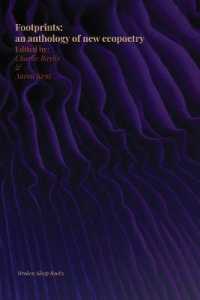- ホーム
- > 洋書
- > 英文書
- > Philosophy
Full Description
This book demonstrates that mathematical positions are based on metaphysical elements, which in turn provide schemata for evaluating and expanding metaphysical positions. The argument is grounded in the Platonic notion of the good, Whitehead's late essay on mathematics and the good, and Aristotle's sustained criticisms of Platonic philosophy of mathematics. Bridging ancient and modern thought, from Phaedo to the modern notion of Abelian groups in mathematics, it demonstrates that both mathematics and metaphysics incorporate contrast-rich experience and context-independent formalism and—at their best—can be partners in helping to discern fundamental features of the fullness of reality. David A. White explores how developments in mathematics and mathematical understanding can indicate, illustrate, and contribute to assessing metaphysical considerations when accounts of reality are approached from the standpoint of an articulated representation of the good.
Contents
ContentsAcknowledgments
Preface
Chapter 1 Number and Unity in the Phaedo
Chapter 2 Whitehead and Plato: The Legacy of Triangles and Numbers
Chapter 3 Plato and the Notion of Grouping: Collection and Division
Chapter 4 Mathematics and Grouping-Collection and Division Revisited
Chapter 5 Aristotle and the Metaphysics of Numbers
Chapter 6 Aristotle and Grouping: An Intersection of Mathematics and Metaphysics
Chapter 7 Mathematics and the Good: A Speculative Prelude to Metaphysics
Chapter 8 Mathematics and the Good: On the Maximization of Metaphysics
Notes
Bibliography
Index








